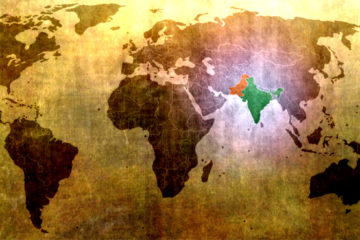
Prolonging Conflict: Global Powers’ Involvement in the India-Pakistan Rivalry
The India-Pakistan conflict is one of the most enduring rivalries of the post-World War era. The two nuclear states have fought four wars, and smaller-scale skirmishes are common occurrences. Since the nuclearization of the two countries in 1998, the nuclear stalemate has been one of the most important facet of this ongoing rivalry. Apart from Kashmir, over which three wars have been fought, constant cross-border terrorist attacks in India have severely limited and disrupted initiatives to defuse the situation. Recently, tensions have flared up because of the decision by the Indian government to abrogate Article 370 of the constitution which gave the state of Jammu and Kashmir special status within the Indian republic. This move has infuriated Pakistan, vowing to …
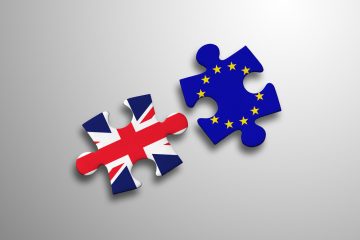
Waking Up Post Brexit: to a Colonizer Dream or a Colonized Reality?
President Donald Trump promised a “very big trade deal” between the US and the UK after Brexit. Prime minister Boris Johnson, however, was less certain, stating that it will not be “plain sailing.” As third prime minister since the Brexit referendum, he is aware that at the moment “the only certainty is uncertainty.” While Mr. Johnson insists that Brexit will take place on 31 October, it remains unclear what will come after Brexit. Brexit optimists paint a picture of unbound potential. Britain freed from the shackles of the EU and Common Market rules and regulations, is able to freely negotiate new trade deals. Embracing the Commonwealth is presented as alternative to remaining in the EU, which is seen as being …
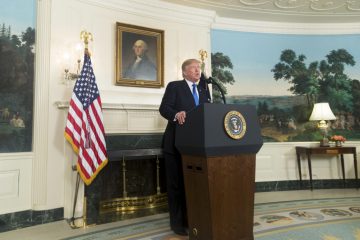
Trump’s Nuclear Gambit Threatens US Security
Three years ago, US-Iranian relations could not have been better. Once declared part of the ‘Axis of Evil’ by then-president George W. Bush, the Iran Nuclear Deal signed by his successor Barack Obama heralded a new age of more constructive ties with Tehran and the promise of greater nuclear security. While critics raised concerns that Iran would renege on the deal, these fears had proven unfounded so far – the IAEA confirmed that Iran has complied with its obligations under the agreement. Nonetheless, the Trump administration withdrew the US from the nuclear deal. Additionally, Trump has re-imposed all sanctions removed in 2015. With trust between Washington and Tehran in tatters and US carrier groups deployed to the Persian Gulf, the …

WILL HISTORY REPEAT ITSELF WITH PRESIDENT TRUMP’S TRADE WAR WITH CHINA?
The iconic statue of the first American postmaster general Benjamin Franklin greets visitors to the Old Post Office Pavilion in the heart of the US capital: Washington, DC. The edifice is now home to the luxurious and controversial Trump International Hotel on Pennsylvania Avenue at the mid-point between the US Capitol Building and the White House. The hotel webpage invites guests to “share tea” in the Benjamin Bar to discuss “social and economic affairs” as it was the “‘established custom’” in colonial America. It further states that “we agree with Franklin” and delight to “serve tea from China.” The page indicates that Franklin had stated “‘at least a million Americans drink tea twice a day,’” Yet, he was “unable to …
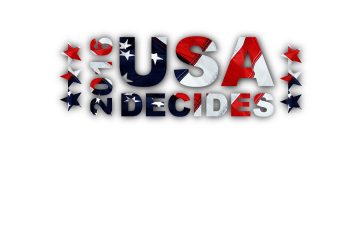
America’s Other Vote: Cannabis Legalisation on the Ballot
Casual observers and the millions who have tuned in to watch the Presidential debates might be unaware of the other important vote taking place tomorrow: cannabis legalisation. While the omission of any question on climate change during the three Presidential debates garnered widespread attention, the legislation of this soft drug was the second major absentee in the televised clash between Hilary Clinton and Donald Trump. On November 8th, US citizens will not only elect a new President; initiatives to legalise recreational cannabis are also on the ballot in five states. There is a good chance that disappointed Trump or Clinton supporters will be able to drown their sorrows with legal marijuana in California, Nevada, Massachusetts, Arizona and Maine. The map …
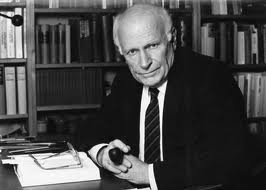
Applying Reinhart Koselleck’s conception of historical time to ideology in America
Last week, I gave a talk at Oxford’s Rothermere American Institute about the German historian Reinhart Koselleck (left) and the relevance of his conception of ‘historical time’ to the study of ideologies in America. We are used to thinking about ideology as a pejorative term — a utopian blueprint for world order with all the consequences that totalitarianism brings. But this is a narrow view. Ideologies are, more broadly speaking, a particular type of political thinking that operates in-between political philosophy and what we can call ‘real politics’ — that is the practical doing (and thinking) that goes on in political life. By ‘in-between’ I mean distinct from philosophy and ‘real politics’, but not mutually exclusive to them. Ideologies are, to put it crudely, where ideas and political action meet; they are ideas with an active prescriptive component which aim for political influence. Ideologies are types of political thought that want to influence political conduct.
Why Reinhold Niebuhr?
Pardon the self-promotion: I reviewed a new book on Reinhold Niebuhr, a theologian and realist political thinker during the Cold War, in last week’s Economist. Niebuhr died in the 1970’s but both Democrats and Republicans lean on his advice (even if misread) to guide their modern foreign policy views. Here is a snippet from my review of the book, Why Niebuhr Now?, by John Patrick Diggins, the late American intellectual historian. AFTER years in the doldrums, Reinhold Niebuhr, an American theologian, is enjoying a comeback. Although Niebuhr died in 1971, he is nowadays often name-dropped in opinion columns and highbrow chat as the ideal mind to help guide 21st-century political leaders through the ups and downs of world affairs. It …









